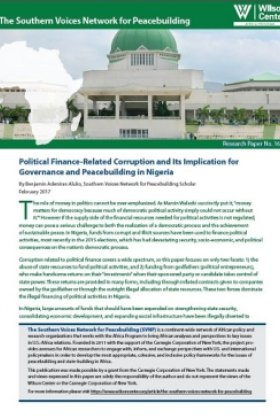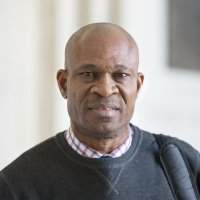Political Finance-Related Corruption and Its Implications for Governance and Peacebuilding in Nigeria


While it varies from country to country across Africa, the funding of elections has exposed key challenges including uneven access to funding across ruling and opposition parties, the use of state funds to finance campaign activities, clientelism and vote buying, and funding sourced from illegal activities.
In Nigeria, electoral observers from the EU witnessed many of these challenges present in the 2015 election, including the possible diversion of state funds for campaign use. These political finance challenges are one important facet of the problem of corruption, with tangible consequences for governance, development, and, indirectly, long-term peace and security. What is the scale and scope of political finance corruption in Nigeria today, and how have these trends evolved over time? How can Nigeria more effectively tackle political finance corruption, including by taking advantage of existing laws on accountability and transparency and introducing new political finance reforms to combat the problem? What lessons do other countries offer Nigeria on political finance reform, and what lessons can be drawn from the Nigerian experience?
In this paired paper and policy brief, Southern Voices Network for Peacebuilding Benjamin Adeniran Aluko examines the drivers of political finance-related corruption, studies its implications for governance and security, and provides suggestions for countering it.
Author

Research Fellow, Ibadan University

Africa Program
The Africa Program works to address the most critical issues facing Africa and US-Africa relations, build mutually beneficial US-Africa relations, and enhance knowledge and understanding about Africa in the United States. The Program achieves its mission through in-depth research and analyses, public discussion, working groups, and briefings that bring together policymakers, practitioners, and subject matter experts to analyze and offer practical options for tackling key challenges in Africa and in US-Africa relations. Read more




